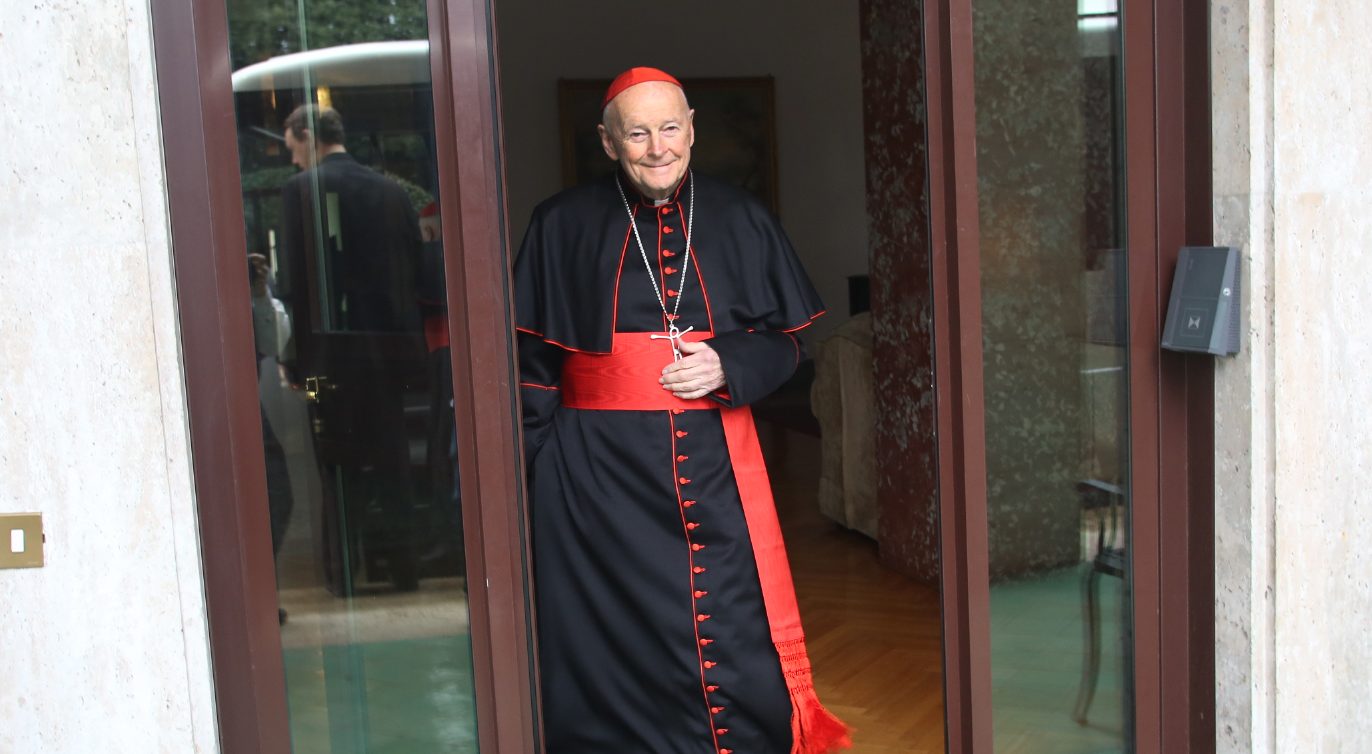Georgetown University has revoked the 2004 honorary degree it conferred on Theodore McCarrick, former cardinal and archbishop of D.C. The decision, announced by university President John DeGioia on Tuesday afternoon, comes after allegations of sexual abuse led the Vatican to remove McCarrick from the priesthood on Feb. 16.
This is the first time the university has revoked an honorary degree. The verdict was made by a working group of the university’s board of directors, which originally convened in the summer of 2018 after the allegations against McCarrick were made public, DeGioia explained in an email to the student body.
With the Vatican announcing its decision to laicize McCarrick, he is no longer supported by the Catholic Church and is barred from celebrating Mass. This is the first time a former cardinal has been laicized. McCarrick, archbishop of D.C. in the early 2000s, was accused of abusing men and boys for decades, leading the Vatican to remove him from public ministry and accept his resignation from the College of Cardinals in July. Within two months of McCarrick’s resignation, six Catholic institutions, Fordham University, Catholic University, University of Portland, St. Bonaventure University, College of New Rochelle, and Siena College, had revoked honorary degrees they had granted to him.
Cardinal Donald Wuerl, who also holds an honorary degree from Georgetown, was accused of protecting abusers by reassigning them to new parishes and covering up allegations in a Pennsylvania Grand Jury report released in August 2018. Pope Francis accepted his resignation as D.C.’s archbishop on Oct. 12.
Student activists have called for the rescindment of both degrees since the allegations became public. Julie Bevilacqua (COL ’19) is one of a group of students who met with university officials over the fall semester to advocate for the revocations.
“I’m simultaneously happy that [McCarrick’s] degree is being revoked and also frustrated that it took this long,” Bevilacqua said.
The Georgetown University Student Association (GUSA) passed a unanimous resolution urging the university to revoke the honorary degrees of McCarrick and Wuerl during an Oct. 28, 2018, meeting. The Georgetown Voice and The Hoya both published editorials in the fall calling for the revocation. The university did not directly comment on McCarrick until Tuesday, while there has still been no word about Wuerl.
“The Working Group has welcomed input from members of our community, and its work has helped to shape our response today,” DeGioia wrote. The university president cited an email he sent in September 2018, in which he called for the university to create “a culture of safeguarding vulnerable people.” Yet, Bevilacqua said this email had not mentioned the Catholic Church’s sexual abuse crisis or survivors until the sixth paragraph and never named McCarrick. As for Tuesday’s announcement, she said the lack of credit toward student activists’ work on the degrees in the email is an example of how the decision was “lessened” by the university’s lack of transparency with students.
The University of Notre Dame also rescinded the honorary degree it conferred on McCarrick on Tuesday. In an August 2018 email to the student body, Notre Dame President Rev. John I. Jenkins explained that the university would wait for the conclusions of the Vatican’s trial of McCarrick before making a decision about the degree. The university released a statement with the decision to revoke the degree on the morning of Feb. 16, just a few hours before DeGioia’s email.
Bevilacqua said that the removal of McCarrick’s degree is just the first step in a process of examining who should hold honorary degrees from Georgetown. She was disappointed DeGioia’s announcement had not mentioned the status of Wuerl’s degree or those of other accused sexual assaulters such as Charlie Rose, who holds an honorary Georgetown degree conferred in 2015. She hoped the working group would create a standard for revoking such honors.
“I would hate to see this action lead to any sense of complacency on the university’s part,” said Bevilacqua. “If we really want to take a critical look at the way our university is looking at interpersonal violence, we need to be looking at this more broadly.”





